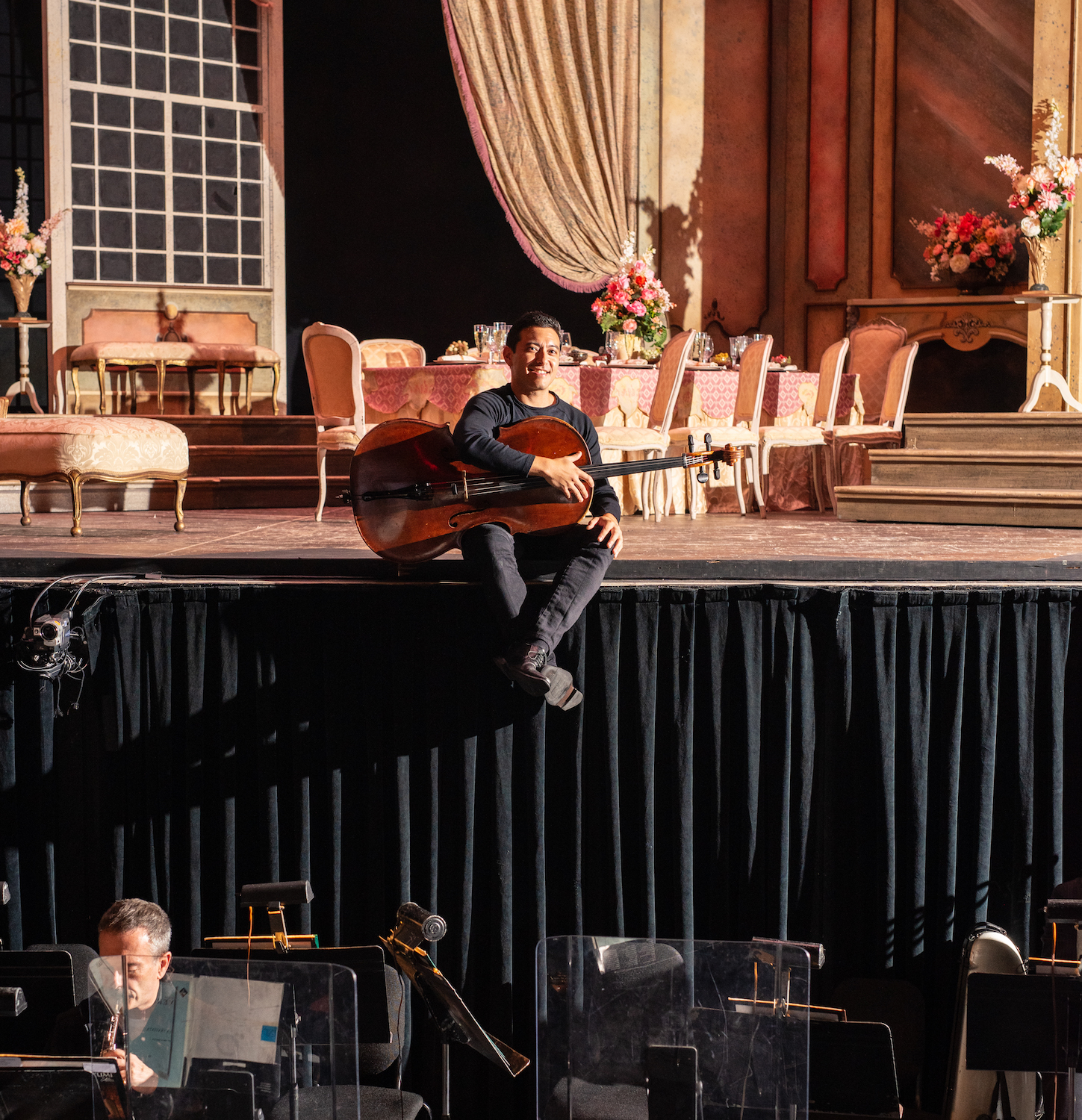Since his debut with the Hawaii Symphony Orchestra, cellist Joshua Nakazawa has fostered a unique musical life in the islands.
Joshua Nakazawa leads a double life. Some nights, the 32 year old wears tux and tails and sits in the cello section of the Hawaii Symphony Orchestra, performing works by Beethoven and Brahms, even Bruckner. Other times, clad in jeans and T-shirt, the cellist heads to the home of ‘ukulele great, Jake Shimabukuro, to experiment with the musician on snippets of jazz or blues or chamber music, all the while fine-tuning phrasing and timing and textures and sounds.
Nakazawa and Shimabukuro play together periodically at Blue Note Hawaii, a jazz club in Waikīkī. A stint there in April 2019 showcased the sensibilities of two serious artists bent on synchronizing their respective gifts.
“What I love most about classical musicians is the discipline and the commitment they have to their art,” Shimabukuro, 42, says. “They’re always striving for excellence, almost like Olympic athletes. It is inspiring for me to play with Josh or anyone that comes from that world.”

The instrumentalists first worked together in June 2015 when Shimabukuro performed the world premiere of composer Byron Yasui’s fiendishly difficult “Concerto for Ukulele and Orchestra, Campanella” with the Hawaii Symphony Orchestra. The concert, conducted by JoAnn Falletta, also marked Nakazawa’s professional debut with the ensemble.
On stage, Shimabukuro uses an acoustic ‘ukulele amplified by a built-in mike. Cohort Nakazawa, on the other hand, plies a colorful, electric cello.
“Going down the electric realm is an endless rabbit hole, and playing with Jake is giving me an opportunity to learn everything about that realm,” the cellist says. “With every cello, acoustic or electric, you create different nuances. The main goal with the electric cello is to generate emotion.”
Four years ago, Nakazawa auditioned for the Hawaii Symphony Orchestra and won a slot. Born in Boston, he graduated in 2008 from the Manhattan School of Music, and two years later received an Artist Diploma from Southern Methodist University in Texas. Enjoying the collegiality of summer music fests, Nakazawa has participated as soloist in master classes and performed chamber music at Canada’s Banff Music Festival as well as the Pacific Music Fest in Japan, and the Spoleto Music Festival in South Carolina.
With an annual operating budget of about $4.6 million, the orchestra schedules 11 classical Masterworks programs, and six pops concerts, including those beloved Harry Potter extravaganzas, each season. Then there’s Music that Rocks, a series initiated by executive director Jonathan Parrish, that pays tribute to giants such as Queen and Michael Jackson.
Nakazawa appreciates that the orchestra commissions and plays works by local artists. “This is what brings the community together,” he says. He points to “Symphony of the Hawaiian Birds,” a collaborative project between composers, educators, artists and scientists that the orchestra first presented for students in May 2018.
Another career standout for Nakazawa was performing as soloist on the soundtrack of the WW II feature film, Go for Broke: An Origin Story. The 2017 drama about Japanese American soldiers was scored by Shimabukuro.
Members of the orchestra play a pivotal role in fostering musical life on the islands. Many teach and coach youth ensembles. Nakazawa privately instructs about a dozen students, including adults who participate in church bands. Some musicians from the orchestra perform at Hawaii Opera Theatre productions. At year’s end, the 64-orchestra core, subcontracted by Ballet Hawaii, accompanies The Nutcracker.
In an effort to create performance opportunities for himself and colleagues, two years ago Nakazawa founded Mana Music, a type of clearing house where requests come in for musicians across the state to play at weddings, church services, holiday gigs, in string quartets, or on albums, etc.
“You are here for a period of time and know who everybody is,” says Nakazawa, who via Mana Music secured work with Hawaiian singer-songwriter Paula Fuga. “What a privilege when you join a symphony. People know you can actually play your instrument because of the grueling audition process. It opens the door to other opportunities.”
Nakazawa welcomes the freedom and spontaneity of their stage appearances, in contrast to the more formulaic nature of presenting classical fare. “With classical music the audience knows the program and knows what it is getting into,” the cellist says. “With our show, every night there’s a different feeling of what we pick up from the energy of the audience. And every night there’s the opportunity to deliver things in a different way. That’s entertainment.”



